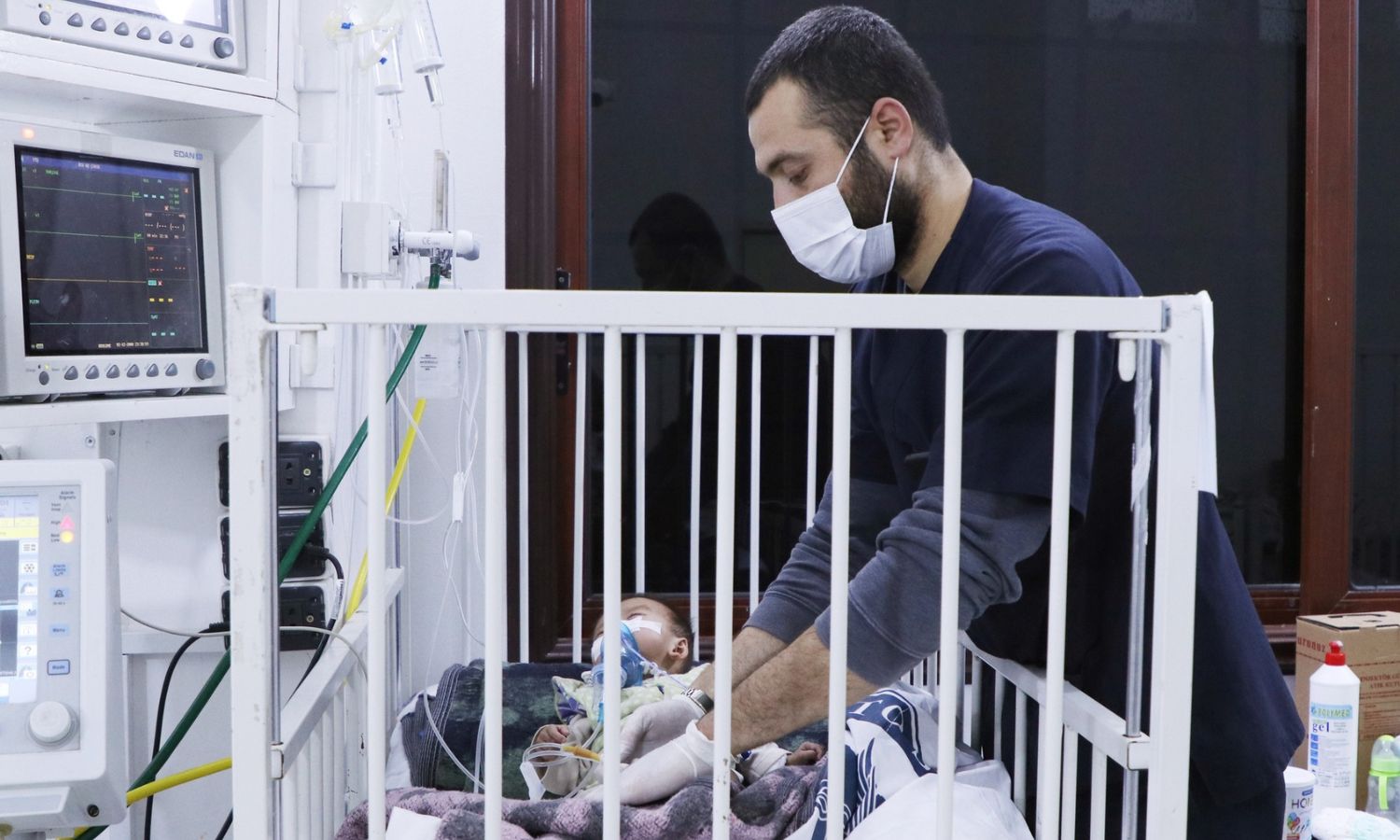



Waseem, 28, experienced difficult days after his four-month-old child suffered from a severe respiratory problem; however, timely ambulance assistance and necessary medical interventions saved his child’s life.
Waseem, a displaced living in Idlib, stated that his family noticed a change in the color of their only child a few days ago, along with difficulty in breathing and feeding. After the child was transferred to the hospital, examined, and diagnosed, the doctor informed Waseem that the child needed to be admitted to the intensive care unit to receive the necessary oxygen and medical care. The doctor also instructed that the child should remain in the hospital for five days.
Waseem added that after five days of fear and anxiety, his child began to recover, and there was no longer a need for him to stay in the hospital, but it was essential for him to attend daily aerosol sessions and ensure that the child received the necessary medications on time, while avoiding the use of heating methods that emit toxic gases and harmful odors to the child.
With the arrival of winter, the healthcare system in Idlib has recorded an increase in respiratory and chest infections among children due to the spread of the Respiratory Syncytial Virus (RSV) and the use of primitive heating methods by parents. This is happening amid warnings of a worsening crisis and the insufficient availability of hospital beds.
The cold temperatures, humid environment, and extreme population density have created a fertile environment for the spread of Respiratory Syncytial Virus (RSV), which affects children under the age of five, with increased severity for children under the age of two.
Abdulqader Razzouk, a pediatrician at the Maternity Specialized Hospital in the village of Qah, supported by the Syrian American Medical Society (SAMS), stated that the intensity of respiratory illnesses in children has increased with the onset of winter, with a 300% increase in the number of registered children brought to the emergency department.
The doctor explained that the main reason for this epidemic is the spread of the Respiratory Syncytial Virus (RSV), which particularly affects children under the age of two, and emphasized that the most affected group is children under three months old.
The doctor attributed the increase in the number of affected children to the extreme population density, the use of unhealthy heating methods such as coal and plastic, which has led to the spread of other viruses causing children to suffer from acute bronchiolitis syndrome.
The doctor advised parents, especially those with children, to maintain social distancing, reduce family visits to protect their children from viral infections, avoid using unsafe heating methods, and refrain from smoking indoors or near children.
The doctor stressed the importance of raising collective awareness about the dangers of using coal, plastic, and old clothing for heating and the need for government efforts to provide good heating alternatives at reasonable prices.
Zuhair al-Qarrat, the director of the Health Directorate in Idlib, stated to Enab Baladi that northern Syria is currently witnessing a noticeable increase in acute respiratory diseases, and the weekly notification data from the Early Warning Alert system centers shows an increase in the number of Influenza-Like Illness (ILI) and Severe Acute Respiratory Infection (SARI) cases.
According to al-Qarrat, the data shows that the number of cases for both illnesses has exceeded the annual average, especially in 2021, which faced the Delta variant pandemic wave.
The doctor added that some recovery wings in hospitals and intensive care units have become full, especially with the admissions resulting from severe respiratory infections.
The doctor explained that Respiratory Syncytial Virus (RSV) is a common respiratory virus that typically affects children and adults to a lesser extent, causing a severe respiratory illness similar to the common cold, which usually heals within a few days without the need for specific treatment.
The doctor emphasized that the infection is more dangerous for infants born premature, adults with heart and lung conditions, or those with weakened immune systems.
if you think the article contain wrong information or you have additional details Send Correction